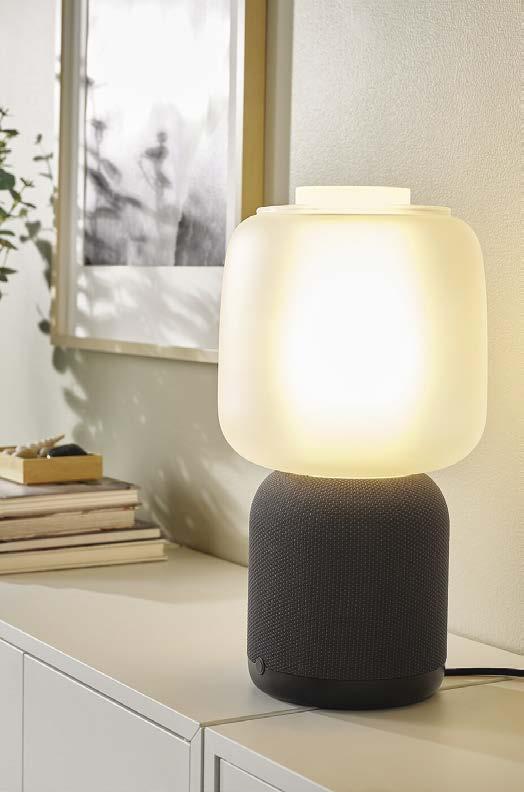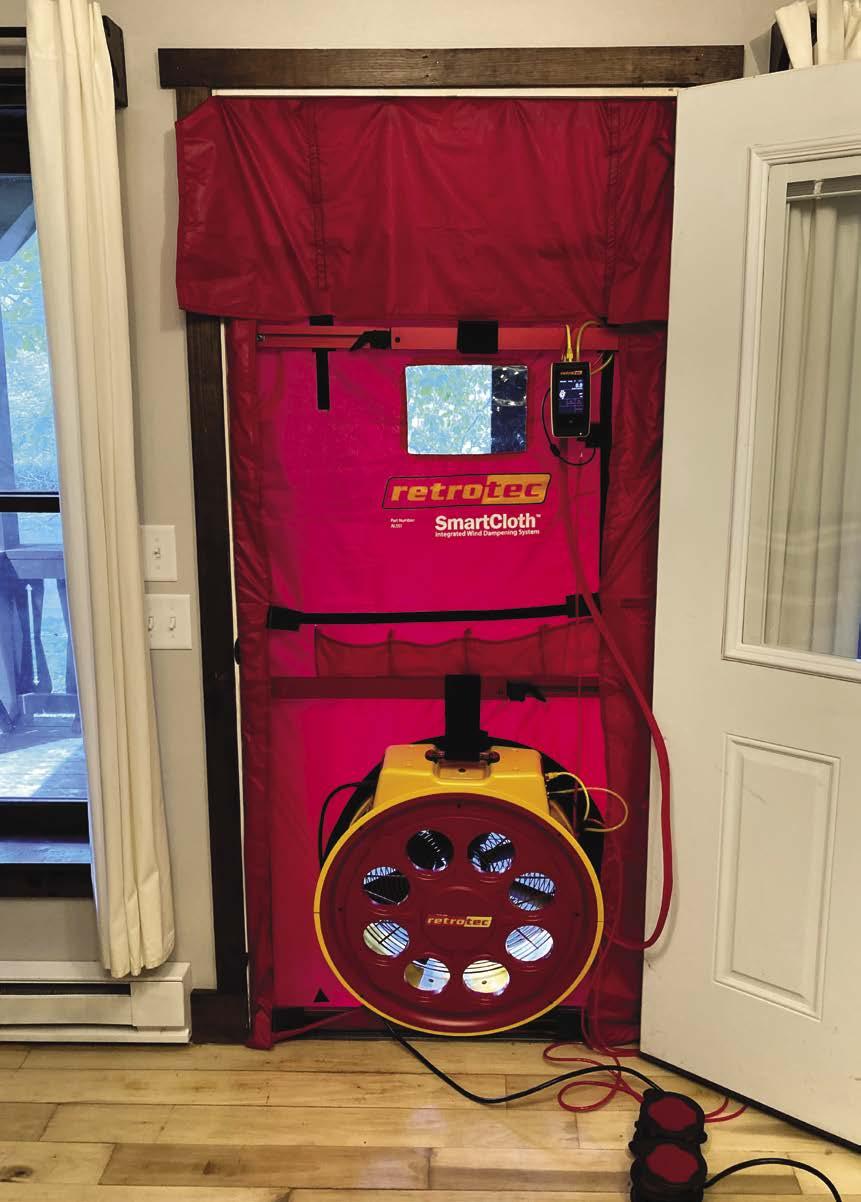
8 minute read
Around the Nation
by AIRAH

1 2
Advertisement

Fujitsu Applied Business Manager Frank Spiropoulos
4 5 3

1 LICENCE ALERT IN NSW

The New South Wales government is implementing a new licensing class for mechanical services and medical gases.
On October 1, the medical gases component of this system commenced. The broader mechanical services licence is due to begin on March 1, 2023.
AIRAH and other HVAC&R industry bodies have been calling for meetings with the government to clarify the scope of the new licence and confirm how it will work alongside the existing air conditioning and refrigeration licence.
At time of going to print, Fair Trading’s position was that the selection, installation, maintenance and alteration of pipework on chilled water, hot water and condenser water air conditioning systems can only be done by the holder of a mechanical services licence.
According to the amendments made to the Home Building Act, a Certificate III in Plumbing (Mechanical Services) will be required to obtain a mechanical services licence.
AIRAH and other industry bodies have flagged the issues with this approach, and the impact it would have on the HVAC&R industry.
All holders of air conditioning and refrigeration licences are advised to check the NSW Fair Trading website for the latest information on the new mechanical services licence and how it will affect them.
Go to www.fairtrading.nsw.gov.au ■
2 FRANK STATEMENT FROM FUJITSU
Fujitsu General Australia has welcomed Frank Spiropoulos to the role of Applied Business Manager.
Fujitsu General says Spiropoulos is a seasoned HVAC professional with experience in a range of roles valuable to the business: from chiller technician to authorised dealer and product support manager. Before joining the company, his most recent role was as solutions engineer for Trane Technologies. “As Fujitsu General’s applied business continues to grow and engage with new customers working on commercial and industrial projects, it is important that we have the best people in the team to provide the most valuable and up-todate insight and experience,” says Peter Cashel, Head of Sales, Fujitsu General Australia.
“Frank’s extensive practical experience in the HVAC industry, and his impressive knowledge of commercial products and service is a great fit for Fujitsu. We are excited about the future of the applied range with a growing and dedicated team driving it.”
Go to www.fujitsugeneral.com.au ■
3 NO MORE DODGY COURSES
The Australian Refrigeration Council (ARC) says it has put an end to dodgy RTOs that issue spurious qualifications typically based on inadequate two-day courses and inappropriate reliance on recognition of prior learning (RPL) processes.
“Over the years, ARC has worked in partnership with the Australian Skills Quality Authority (ASQA) to shut down these courses,” says ARC CEO Glenn Evans.
“Significantly, this means you can no longer get a Certificate II RAC qualification by attending a quickie weekend course and going through a meaningless tick-and-flick RPL process.
“Even accounting for RPL, these courses should typically involve a minimum of 360 hours.”
Evans says RPL is a rigorous process to verify the skills people already have. It assesses an individual’s competencies in great detail – competencies which may have been acquired through formal, non-formal and/or informal learning.
“The learner must submit a great deal of evidence,” says Evans, “including referee reports, resumes, photographic and documentary evidence and interviews for every competency required.”
Evans says the ARC will continue checking for any signs of dodgy training returning.
4 RETROFITS REAP REWARDS
A comprehensive study conducted through the Victorian Healthy Homes Program has measured the impact of an energy efficiency and thermal comfort home upgrade on temperature, energy use, health and quality of life. It found that for every dollar saved in energy, more than $10 is saved in health.
From 2018–20, Sustainability Victoria oversaw the roll-out of upgrades to 1,000 homes of low-income Victorians with a health or social care need. The Australian Energy Foundation was engaged as delivery partner, and University of Technology of Sydney managed the research and evaluation elements.
According to researchers, the Victorian Healthy Homes Program showed that a relatively minor thermal comfort and energy efficiency upgrade – with an average cost $2,809 – delivered multiple benefits. These include increased indoor temperature (real and subjective), reduced condensation, and lower gas use, leading to lower energy bills and emissions. Researchers also found that those in upgraded homes used fewer healthcare services and had lower health costs – savings over the three-month winter period were $887, dwarfing the $85 energy cost savings. Go to bit.ly/3OnhzYP ■
5 PERFECT FIT FOR APS AND SIEMENS
APS Industrial has been confirmed as an Australian national distribution partner for Siemens building technology products.
The latest agreement adds the Siemens building technology product portfolios to the partnership. These include building automation and associated HVAC field devices (valves and actuators, damper actuators, sensors, metering products and room thermostats), variable speed drives, and Siemens’ GAMMA instabus range of KNX lighting controls.
“The highlight of the portfolio is Desigo FIT, customised for the Australian building products industry,” APS Industrial says. “Desigo FIT applications for heating, cooling and ventilation



8 9
10

are the perfect fit for small to medium-sized buildings. They enable you to create sustainable and efficient buildings such as schools, small offices, residential buildings, and small hotels.

“Desigo FIT applications include field devices, room and primary automation, operations and building management.” Go to apsindustrial.com.au ■
6 STILL ON THE BOIL
In October, Simons Boilers celebrated 90 years of business at a special event at the Powerhouse Museum in Sydney.
“The products that we build are the ‘unsung heroes’ of industry,” said CEO and owner Derek Simons. “They are tucked away in the corner of plantrooms, quietly powering the more glamourous machines, that make many of the products used in our daily lives.”
Simons also quoted a statistic that 30 per cent of family businesses make it through the second generation, 10 per cent through the third, and only 3 per cent through the fourth.
“Well, I stand here tonight, midway through succession of our fourth generation of engineers at the helm, and still punching on,” said Simons. “If any of my three kids decide to take on the next round, I hope that they too will prove the pundits wrong!” Go to simonsboiler.com.au ■
7 PICKING FAULTS
The Department of Climate Change, Energy, the Environment and Water (DCCEEW) has published the complete results of its refrigeration and air conditioning bench-testing project.
The project is the next stage of a much larger project to quantify the benefits of better installation and regular equipment maintenance practices.
For refrigerated display cabinets, a 40 per cent blocked condenser reduced the system performance and increased its energy consumption by around 16 per cent. For walk-in cool rooms, contaminated refrigerant had the greatest negative impact on system performance, with the energy consumption increasing by almost 70 per cent over the reference run.
For non-ducted split systems running at 70 per cent refrigerant charge, there was a drop in unit capacity by 17 per cent in the cooling cycle and 19 per cent in the heating cycle compared to the reference run.
For ducted rooftop packages, at 100 per cent refrigerant charge with 51g of a non-condensable added (at T1 temperature zone), there was a drop in unit capacity of almost 18 per cent in the cooling cycle, and with 70 per cent refrigerant charge a drop in unit capacity of 55 per cent in the heating cycle, compared to the reference run. Go to bit.ly/3tI0D5J ■
8 EVERYTHING HAPPENS FOR A RIESLING
With the help of Cold Logic, Jim Barry Wines recently upgraded its refrigeration plant to improve both the quality of its riesling and its environmental performance.
Temperature control is a critical parameter in quality wine production and is especially important operation in South Australian wineries, given the warm climate. Refrigeration addresses this need, but at a cost: it typically accounts for 50–70 per cent of total electricity use.
Cold Logic was the refrigeration provider on the project, designing and assembling an ammonia plant at its Port Adelaide factory. The equipment was sized to accommodate growth, with the ability to service a 4,000-tonne crush and whole bunch pressing of 15 tonnes of riesling a day.
Jim Barry Wines General Manager Tom Barry says that as well as preparing for the future, the project was heavily focused on sustainability.
9 NEW PLAYER IN VENTILATION
GJ Walker Air Handling Systems has announced its new industrial fan division, Walker Industrial Systems (WIS), as part of the company’s new focus on the industrial ventilation market.
The GJ Walker Group says WIS will add a range of industrial fans and blowers to its portfolio of products, bringing a new market with different ventilation requirements that complements its existing successful air handling systems business.
Servicing clients nationally, WIS will be headed up by two experienced fan engineers in Steve McGuire, with more than 20 years’ experience in the industry, and Sudevan Nallathamby, extending his current position as GJ Walker General Manager to also include WIS Director.
Go to www.gjwalker.com.au ■
10 GLEESON CALLS TIME AT AIRAH
AIRAH has announced its Chief Executive Tony Gleeson, M.AIRAH, will be stepping down in early 2023.
Appointed to the position of CEO in 2016, Gleeson has overseen a number of major achievements including the expansion and digitisation of AIRAH’s knowledge assets such as the Design Application (DA) manual series, successful advocacy for the compulsory registration of engineers, promoting women in STEM, establishing AIRAH’s membership of Standards Australia, establishing and chairing the $18M Innovation Hub for Affordable Heating and Cooling (i-Hub), and being a leading voice on indoor air quality, particularly during the pandemic period.
“Tony is leaving AIRAH in a position of great strength,” says AIRAH President Paul Jackson, F.AIRAH.
“Although the board and his team will miss him enormously, we know Tony will continue to be a part of AIRAH’s community and a leading voice across all facets of the profession.”







